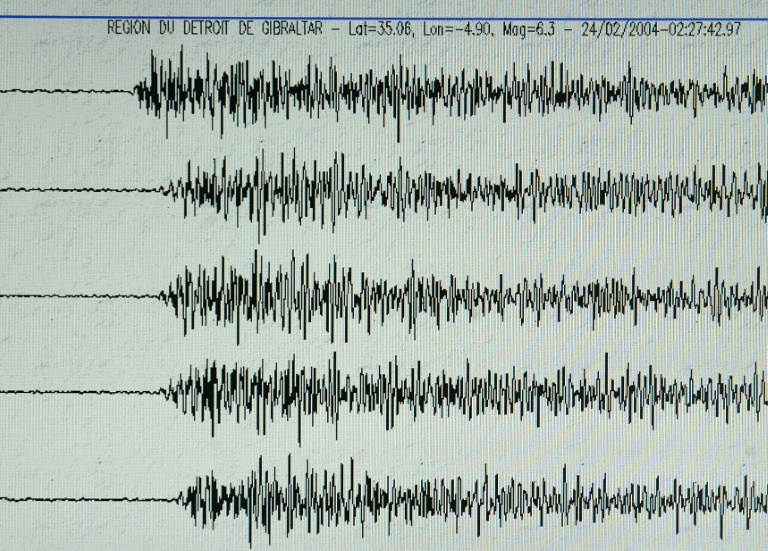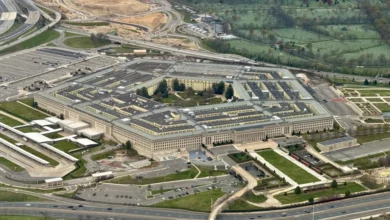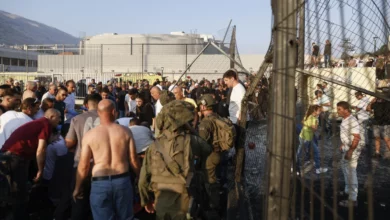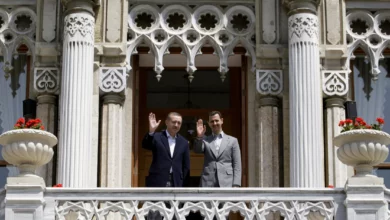The role of Syrian intellectuals in their revolution has raised various questions since the uprising began. On one hand, there is a genuine interest in understanding where they stand on the revolt. But on the other hand, they are often under attack, sometimes even accused of treason, especially since successive developments in Syria have weakened their role to a point even lower than it was at the beginning of the uprising.
Although most voices — whether they are the media, Arab commentators, or the Syrian revolutionaries themselves —accuse the intellectuals of cowardice, opportunism or accord with the nation’s dictatorship, as well as of distancing themselves from the people and living in ivory towers, it is wrong to put all intellectuals in one basket or to make such a vast generalizations about that segment of society. Instead, there is a need to historicize the complex status of Syria’s intellectuals.
Amid the rise of national liberation movements in the middle of the 20th century and the expansion of the ideologies, especially the flourishing of left-wing and nationalist strands of thought, intellectuals and politicians became a united front. In the 1950s and 1960s, for instance, it was rare to find a non-politicized Syrian intellectual or a politician uninterested in knowledge and culture. Thus the spheres of culture and politics merged; politics became infused with intellect, and intellectuals engaged in their country’s political affairs.
After the Baath Party took over in Syria, it began a systematic policy of breaking up this front. This was particularly true during the 1980s, when the Syrian security apparatus imposed tight control over the country, manifested in its wars on the cities of Hama and Jisr al-Shughour, widespread arrests of members of the opposition, which included the country’s communist and nationalist parties, and a crackdown on religious movements. This brutality drained the opposition and led to a rift between intellectuals and political authority.
Following this crackdown, the intellectual front appeared to have begun isolating itself from politics, but the truth of the matter is that it split into two camps. One party preferred to become one with the ruling authority, engaging with its cultural and non-cultural institutions, and enjoying the benefits gained, in return for using their pens to serve the authorities while attacking the intellectual camp that refused to be subdued. The second party maintained its opposition of the dictatorship, but mostly did so in a subtle manner or in silence, since vocalization of dissent would have led to exile, imprisonment or death.
The first widely recognized public action taken by this party of “muffled” intellectuals was when 99 of them called for reform in the early 1990s. Known as the “Statement of 99,” the proposal was drafted in opposition to the Syrian regime’s participation in the American-led war on Iraq. The authorities were no doubt in rage and shock by the issuance of such a statement, which broke the intellectuals’ long period of silence.
A number of intellectuals remained unable to remain silent and have since paid with their lives. But for others, this break in their silence was brief, and they were quick to return back to the mute opposition. Some convinced themselves, as a survival mechanism, that the ruling regime had a positive side and that coping with it was justified.
This presumed positive side of the regime referred to some of its ideological and political stances and rhetoric, particularly with regards to foreign policy. This led many intellectuals to justify defending a regime they perceived as sovereign, secular and modern.
Let us not forget that many Syrian intellectuals who were in the opposition camp fiercely defended Bashar al-Assad’s ascent to power in 2000. In addition to their belief in the regime’s rhetoric, the majority also supported the regime because it afforded them many material gains and “esteemed” status, while keeping them detached from the people on the street. This cultivation of detachment is worth deciphering, as it is characteristic of many modern dictatorships’ ruling strategies.
These strategies — or tricks, rather — work to keep intellectuals detached from the rest of society, and the Syrian regime has succeeded in doing this over the past few decades. Following the demise of the wave of progressive ideologies that spoke of intellectuals becoming one with the masses, intellectuals began looking for uniqueness. In its worst form, this meant distancing themselves from the people while theorizing from their observatories. This isolation is defined as the “post-modern condition,” in which intellectuals’ own creative projects lead to their own alienation.
As Syrian intellectuals embraced their detachment, the revolution came as a complete surprise, especially following decades of general submissiveness among the population. And unsurprisingly, Syria’s intellectuals found themselves alienated from the revolution.
When a portion of the Syrian intellectual elite decided to join the revolution after the people took to the streets, they seemed to have thought that they should blindly follow the street’s demands. By doing so, they completely gave up their role of spreading awareness and critically assessing the situation when it was most needed.
It is worth mentioning, however, that Syrian intellectuals are not an anomaly. A few exceptions withstanding, Arab intellectuals in general had a minor, if not near non-existent, role in steering their revolutions. This led Arab revolutions to occasionally veer off course or tend toward revenge and extremism in places that have witnessed excessive violence.
Despite the attempt to contextualize this dilemma, the story of Syria’s intellectuals remains as perplexing as the revolution itself. Syrian intellectuals have taken many paths. A few have rebelled against their isolation, fully engaged in the revolution and written about it — while overlooking its faults. Some support it but are preoccupied by the threat of civil war or sectarianism, especially those belonging to religious or ethnic minorities. And some secular intellectuals remain puzzled, as they support the will of the people but are anxious about the alleged Islamic takeover of the revolution — a fear worsened by the information blackout in the country.
Some may say, “Why don’t we see these intellectuals on the streets?” I believe a slight improvement in the security situation will encourage some of them, at least, to take to the streets. Let us not forget that protesting in Syria today is more like a martyrdom mission, and not everyone is brave enough to undertake such an endeavor; hence, the intellectuals’ visibility is contingent upon the improvement of the security situation. We also need to remember those few young intellectuals who did get arrested for protesting against the regime. This younger generation, it seems, is more adamant about breaking away from the older Syrian intellectuals’ isolation.
In the end, I think comparing Syrian intellectuals to revolutionary Egypt’s intellectuals is unfair, as the brevity of the 18 days leading to Mubarak’s ouster, the presence of a relatively safe space (exemplified by Tahrir Square) for protesters to gather and the presence of various media outlets to cover the revolt, despite some clampdowns, all make comparisons with the situation in Syria difficult.
Rosa Yaseen Hassan is a Syrian novelist and writer.
This article was originally published in Arabic on Jadaliyya and translated by Aisha El-Awady.




